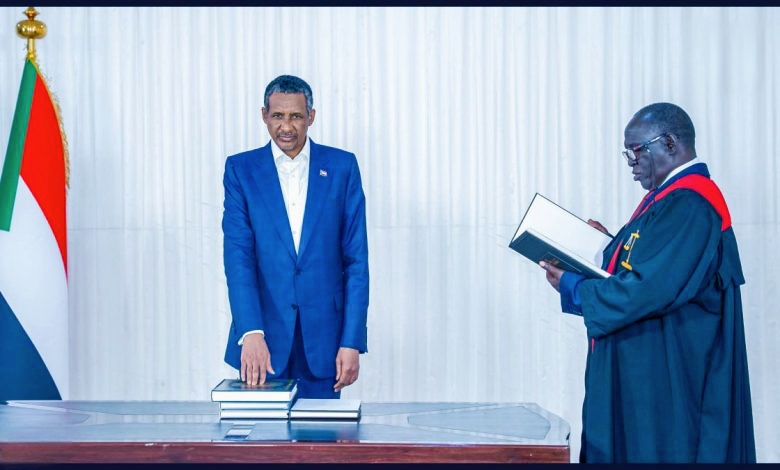Presidential Council Led by Hemetti in Sudan: A New Political Coup?
August 31, 2025438 ViewsRead Time: 3 minutes

Font Size:
16
In a notable development within the escalating conflict in Sudan, Mohamed Hamdan Dagalo, known as "Hemetti", the leader of the Rapid Support Forces, announced the formation of a new "Presidential Council", according to an official statement issued yesterday, Saturday.
Hemetti took the constitutional oath in Nyala, the capital of South Darfur, which is considered the main stronghold of his forces.
The statement clarified that the presidential council will lead the next phase on behalf of the Rapid Support Forces, and a Prime Minister was appointed within the new administrative structure, reflecting Hemetti's attempt to present himself as a legitimate leader over a large part of Sudan, in direct defiance of the existing authority led by the Sudanese army.
* The Battle for Control of Darfur
Despite the extensive control of the Rapid Support Forces over most areas of the Darfur region, battles remain fierce, especially in the city of El Fasher, the historical capital of the region, where fierce confrontations are taking place between the Rapid Support Forces and the Sudanese army supported by local factions.
The Rapid Support Forces have imposed a suffocating siege on the city for more than 500 days, leading to an unprecedented humanitarian disaster.
Hundreds of thousands of civilians are trapped, suffering from hunger and thirst, relying on animal feed to survive, amid a lack of humanitarian aid.
* Ongoing Humanitarian Tragedy
The United Nations Children's Fund (UNICEF) revealed last week that more than a thousand children have been killed or suffered serious physical injuries as a result of airstrikes, artillery shelling, and ground attacks.
Despite these alarming figures, the Rapid Support Forces assert that they "provide civilians with sufficient opportunities to leave", a claim denied by human rights organizations and humanitarian workers.
* The Sudanese Army and a Parallel Government
In contrast, the Sudanese army has managed to regain control over vast areas in central and eastern Sudan, where it announced the formation of the first civilian government since the outbreak of the war, and this government held its first meetings last week, in a step to enhance internal and international legitimacy.
However, the situation remains fragile, as confrontations continue in the Kordofan region, located between Darfur and central Sudan, where small villages are subjected to repeated attacks from both sides, complicating the security and humanitarian crisis.
* A Humanitarian Crisis That Is the Worst Globally
The ongoing war for more than a year has pushed half of Sudan's population to the brink of famine, while the economy has completely collapsed, and epidemics have spread, amid a severe shortage of food and medicine.
Despite limited international movements, efforts to stop the war remain stagnant.
The administration of U.S. President Donald Trump indicated that it is working to find a comprehensive political solution, but so far no actual progress has been made on the ground.
The Sudanese conflict, which began as a struggle between generals and ended in a humanitarian disaster, is heading towards further escalation, with competing legitimacies and increasing civilian suffering, amid an international and regional silence that raises concerns.